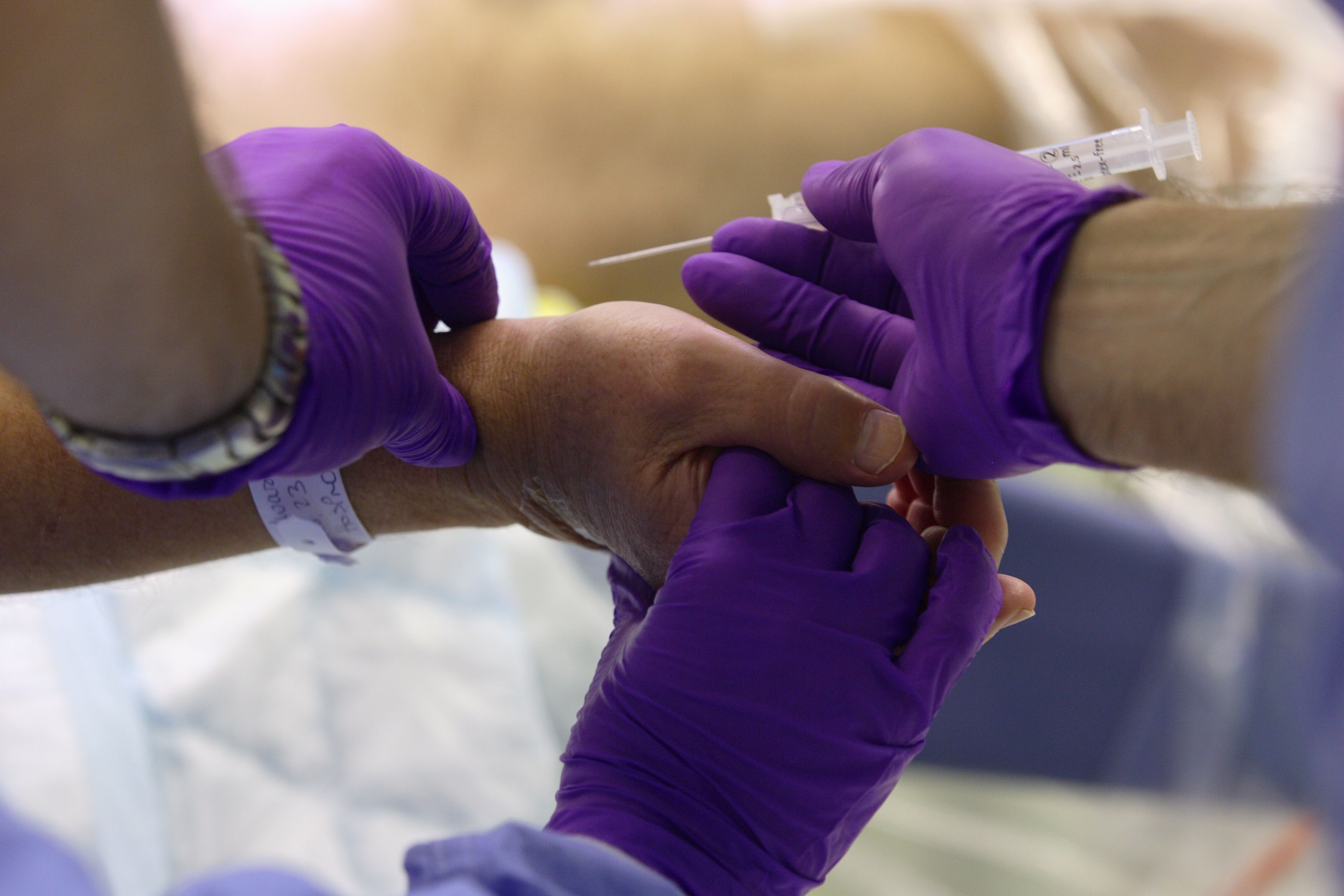Op jab ‘may raise dementia risk’
Older people who undergo general anaesthesia during surgery have an increased risk of developing dementia, research suggests.
While the numbers are still relatively small, people over the age of 50 who underwent general anaesthetic had a doubled risk of developing dementia after surgery, the study found.
Taiwanese researchers wanted to examine the relationship with anaesthesia, surgery and the onset of dementia.
The study, published in the British Journal of Psychiatry, examined the records of 25,000 patients, aged 50 or over, who had undergone anaesthesia for the first time between 2004 and 2008 and compared them to 111,000 patients who had not been administered such medication.
All the patients were followed up until the end of 2010 to identify whether any dementia had emerged.
The authors found that during the two to seven years follow up, 661 of the 24,901 anaesthetised patients (2.65%) and 1,530 of the 110,972 non-anaesthetised patients (1.39%) were diagnosed with dementia. Researchers said the figures equate to a 1.99-fold increased risk.
Lead researcher Dr Jong-Ling Fuh, of the Taipei-Veterans General Hospital in Taiwan, said: “The results of our nationwide population-based study suggest that patients who undergo anaesthesia and surgery may be at increased risk of developing dementia.
“Anaesthesia and surgery are inseparable in clinical settings. Thus, it is difficult to establish whether the increased risk of dementia development we observed was attributable to the anaesthesia per se, the surgical process or both.”
The researchers put forward a number of theories to explain the association, including the possibility of the body being deprived of oxygen or having hypothermia during the anaesthesia period. They also said it is possible that patients in the early stages of dementia may be more susceptible to illness that requires surgery.
Dr Fuh added: “Although anaesthesia and surgery have provided immeasurable health and social benefits, our observations in this piece of research highlight the need for further studies to understand the association and causality between anaesthesia with surgery and subsequent dementia.”
Anaesthetics work by blocking the signals that pass along nerves to the brain, allowing procedures to be carried out pain free.
Latest posts by Sally - Silversurfer's Editor (see all)
- Holiday hack: How to win a GHA DISCOVERY Titanium status upgrade - April 23, 2024
- 10 Money saving tips for gardeners - April 21, 2024
- Should smacking a child be banned in England and Northern Ireland? - April 17, 2024
- Enjoy the best of the UK on a Shearings coach holiday - April 17, 2024
- Blueberry & Lemon Curd Bread and Butter Pudding - April 16, 2024





















